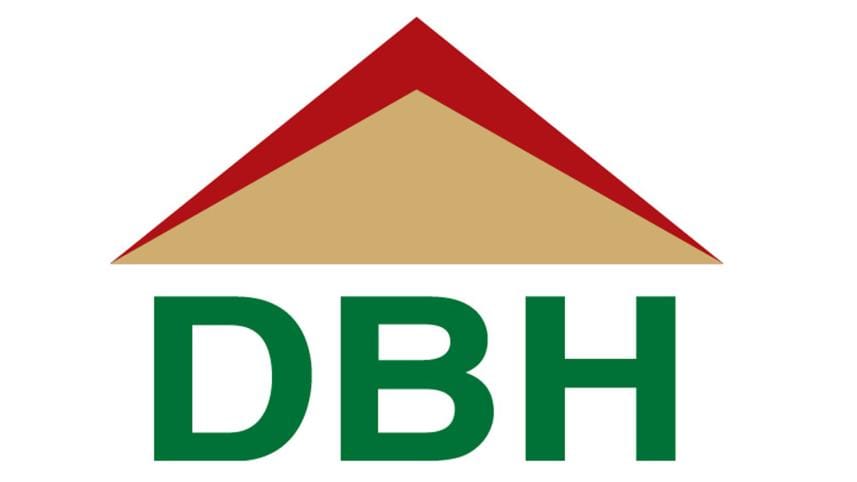The rising dollar rate indirectly affects us

Nasimul Baten
Managing Director & CEO, DBH Finance
The overall economy, including banks and Non-Banking Financial Institutions (NBFIs), is experiencing significant challenges. One of the most notable issues is the interest rate gap that has persisted since the COVID-19 pandemic. During the pandemic, we were unable to increase interest rates, leading to a 9% interest rate gap by 2022. This, coupled with rising inflation, resulted in high funding costs that we couldn't pass on to our clients.
To address this, the government and Bangladesh Bank introduced the SMART rate (Six-month Moving Average Rate of Treasury bill) in July last year. This benchmark aimed to control the upward trend of interest rates, if not making it fully market-oriented.
Subsequent policy changes by Bangladesh Bank caused a sharp increase in interest rates. For instance, the treasury bill rate rose from 8% to 11.5%, which in turn increased the SMART rate. By April 2024, the SMART rate was 10.55%, allowing banks to add 3% and NBFIs 5% to loan rates, resulting in rates exceeding 13%. As of this month, the SMART rate is now market-determined, effective from May 8th. While the full impact is yet to be seen, it's clear it will affect the overall economy and our customers.
Higher interest rates generally lead to a decline in the number of clients. Not all clients are willing to accept higher rates, and those who do may face reduced repayment capacity. This decrease in customer numbers can lower credit scores in the private sector, posing a significant challenge.
Despite our organization maintaining a Non-Performing Loan (NPL) ratio of less than 1%, the industry as a whole struggles with high NPL ratios. This impacts clients by leading to reprovisioning, which reduces their profits.
While we do not directly deal with foreign exchange, the rising dollar rate indirectly affects us through our customers. In an import-driven economy, real estate developers and exporters face higher costs for raw materials due to the increased dollar rate. This elevates production costs, driving flat rates higher and pushing real estate prices beyond the reach of many, reducing the number of potential buyers.
Currently, with interest rates being market-oriented, the government's capacity to directly intervene is limited. However, to control inflation, the government and Bangladesh Bank are taking necessary steps to mitigate the impact of the rising dollar rate.
As a financial institution, our operations differ significantly from those of banks in terms of margin, scale, size, and profitability. Banks have a broader operational scope, while financial institutions face certain peripheral limitations and higher funding costs. Additionally, our tax rate is relatively high compared to banks, which poses a challenge at a granular level. Aligning the rules and regulations for both banks and financial institutions could create a more level playing field.
However, the primary focus should be on the macro economy, and the government's attention to this is appropriate. Given the current constraints on revenue and expenditure, our requests for a lower tax rate can take a back seat. Once the economic conditions improve, we will certainly advocate for positive changes.

At a glance
- DBH Finance PLC is the pioneering and largest specialized housing finance institution in Bangladesh's private sector. Since its inception in 1996, it has achieved remarkable growth in facilitating home ownership in Dhaka and other major cities. Concurrently, it actively promotes the real estate sector to a diverse array of prospective clients, offering crucial support along the way.
- Among all banks and financial institutions in Bangladesh, DBH stands out as the sole recipient of the highest 'AAA' credit rating for an impressive 18 consecutive years. This exceptional rating serves as a crucial indicator of the financial safety, security, and strength of the institution.
- DBH currently operates 15 branches across strategic locations including Dhaka, Chattogram, Rajshahi, Khulna, Rangpur, Sylhet, Cumilla, Gazipur, Savar, Narayanganj, and Mymensingh. In 2023, the institution introduced its DBH Islamic wing, offering Shari'ah-compliant Islamic financial products. With a core focus on housing finance, DBH has disbursed over Tk15,500 crores to benefit more than 57,000 families over the past 26 years.



 For all latest news, follow The Daily Star's Google News channel.
For all latest news, follow The Daily Star's Google News channel.
Comments